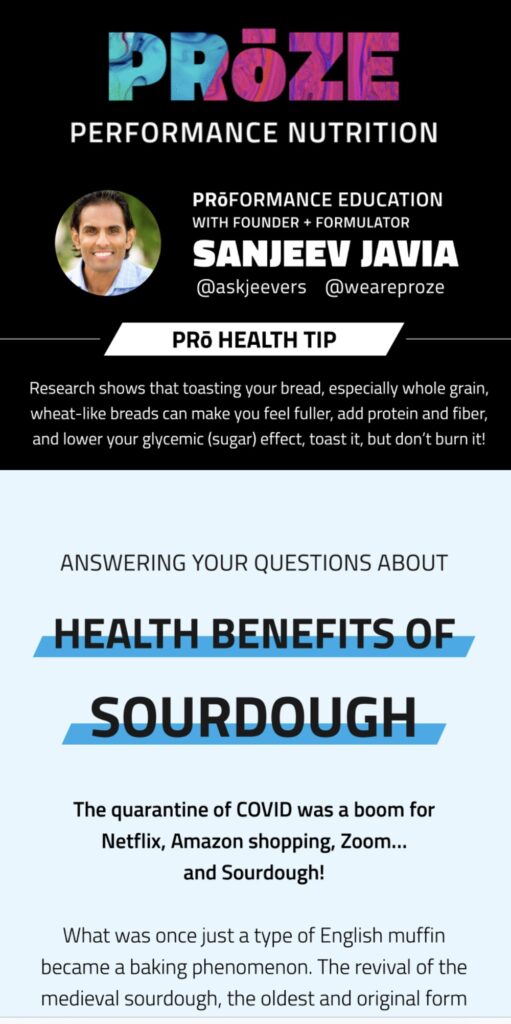Spoiler Alert: Apple Cider Vinegar doesn’t taste like Apples!
Whether it’s grassy smoothies, chalky proteins, or bitter teas, it seems the more unpleasant tasting a “health craze” is, the more people want to do it! Taking a shot of sour, “spoiled” Apple Cider Vinegar is one trend that seems to have fallen right in-line. The promise of slimmer waists, stronger immunity, no more heart burn, and acne free skin, Apple Cider Vinegar seems to be quite the cure all. As with most of these unique solutions, they all start with a “..for thousands of years <blank> has been used…”, let’s see if Hippocrates, Cleopatra, and Sung Tse had this right..
Plug your nose, time to take your SHOT!
Q: What is Apple Cider Vinegar (ACV)?
A: Fermented apples. You take apples, crush them up, you add some bacteria and yeast (same way you make any alcohol), and then you let it sit. As it sits, the fermentation process begins, the sugars from the apples converts to ethanol, an alcohol, as it sits and ferments some more, the ethanol further converts to Acetic Acid (very important, read to the end).
Q: Are there different types or varieties?
A: There is filtered and unfiltered, which means “the mother” is left in the bottle. “The mother” is just a mass of the yeast, acetic acid bacteria, and fibers (pectin and cellulose) from the apples. It contains some minerals and other compounds, but nothing incredibly valuable. Also, ACV may be pasteurized, usually when it says “raw” it’s not, again, no benefit has been seen in research from raw or not. Much of the process is based on how clear they want to make the liquid.
Q: What’s the most important nutrient in ACV?
A: The Acetic Acid. Most of the benefit of ACV has been shown due to its content and levels of acetic acid. It seems to inhibit (stop/reduce) the breakdown of certain types of sugars and carbohydrates into simple sugars. This is important because simple sugars are what get absorbed quickly and spike insulin, raise blood sugar levels, are more apt to be stored as fat, and can cause inflammatory processes.
Q: So can ACV reduce blood sugar spikes?
A: There isn’t a lot of research yet on ACV, but what there is, does show 1-2 tablespoons during meal times, can reduce blood sugar levels after. This was for ACV liquid, not pills. In a study with 11 adults with insulin resistance and 10 with type 2 diabetes, taking ½ Tbsp with meals reduced blood sugar levels by 64% and improved insulin sensitivity by 34%. The diabetics did not see much of a difference in either.
Q: What does that mean?
A: Basically, those that may be pre-diabetic could be helped by taking ACV with meals that are heavy in sugar or carbohydrates. It could slow down the absorption of the sugars, maybe helping them to becoming Diabetic. But more research needs to be done. It looks promising for all of us to take a shot if we eat a carbohydrate-rich meal.
Q: Can it help with Weight-Loss?
A: Modestly, maybe. There was a study that was done that showed over 3 month, there was just over 4lbs lost by a group of Japanese men and women. They drank 1 tablespoon after breakfast and dinner. Other follow up research has shown more of these modest changes with reduction in triglyceride levels and increased “good” HDL cholesterol.
Q: How about digestion?
A: Lots of talk about this on the internet, but NO. Consuming ACV has not shown to improve digestion or reduce heartburn and GERD-like symptoms. In fact, researchers propose ACV may irritate already-existing damage to the lining of the esophagus as many how have chronic acid reflux suffer from.
Q: Balance your pH, make you more Alkaline?
A: Please STOP asking this of any food, water, or health potion. No, no, NO. Your body tightly regulates its pH, ACV nor other food, water, whatever can change that!
Q: Will you have a shot of ACV?
A: Yes, not all the time, but maybe after a high carb/sugar meal. Any time you can reduce blood suga spikes after a meal, that’s a good thing. Less inflammation. If I was pre-diabetic and working towards getting healthier, I’d definitely try to have 1 tablespoon mixed with 8oz of water after 2 of my meals. I don’t think ACV hurts, as long as it’s 1 Tbsp after a meal, at most 2x per day.
Q: What do you think of ACV supplements?
A: Not a great value and really hard to find a good product. I would drink the ACV liquid. The key is the acetic acid, and you need 500-750mg per serving. You can’t get that from supplements and testing has shown most products are well below the claim. Plus, it’s too expensive to do it that way, buying ACV – 365 Organic Raw, Market Pantry, Bragg’s, Lucy’s is way cheaper and has the effective amount in 1 Tbsp.




